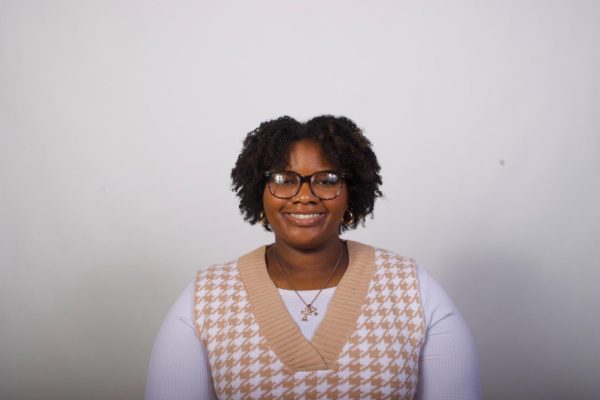COLUMN: ‘Dune’ movie appropriates culture of Muslims, lacks cast to represent it
November 4, 2021
This weekend I had the opportunity to see “Dune” in theaters. With no prior knowledge of the books or previous film adaptations, I didn’t know what to expect. Going into it, I’m pretty sure I thought it was just about people going up against a giant sand worm. It wasn’t.
“Dune” was a great sci-fi film that featured more space politics and magic than action and had me piecing the plot together as I went. It did give the feeling that there was a lot of history that had taken place before the movie started, but as it went on and more characters got more screen time, it made more sense.
The movie looked great, which I found out later might be because the cinematographer, Greig Fraser, also worked on “Rogue One,” one of the best-looking Star Wars movies. It also sounded great, with a soundtrack by Hans Zimmer.
There are some spoilers ahead. The plot follows Paul Atreides, who basically has these dreams and visions that drive him throughout the movie, as his family and noble house travel from their home planet to Arrakis, where most of the movie takes place. The conflict emerges when Arrakis is raided by the rival noble house and it becomes apparent that the Atreides family was sent there in what appears to be an elaborate plot by the emperor.
Something I wanted to touch on is that “Dune” the movie may not have paid heed to the Islamic influences seen in “Dune” the book. I haven’t read the book, but there’s a Washington Post piece called “The novel ‘Dune’ had deep Islamic influences. The movie erases them,” written by Haris A. Durrani, that explores the subject in detail.
Durrani notes that while Frank Herbert’s (the author of the book) approach and engagement to Muslim cultures and experiences was Orientalist, Denis Villenueve ( the director of the movie) “waters down the novel’s specificity.” Herbert’s development of the Fremen language, the group native to Arrakis, took a Caucasian hunting language called Chakobsa and mixed in “’colloquial Arabic’” and modified Arabic using an “elision process” in order to demonstrate how “’languages change.’” These phrases are cited in the piece as being from Herbert’s son Brian in “Dreamer of Dune.”
An NBC News article called “’Dune’ appropriates Islamic, Middle Eastern tropes without real inclusion, critics say” explores the lack of Middle Eastern or North African actors.
Serena Rasoul, casting director and founder of Muslim American Casting, is quoted lamenting all the Muslim imagery being used and how she interprets that.
“’You don’t cast MENA or Muslim actors, yet you profit off their culture,’” she said. “’That’s where it’s painful for us as creatives. … It means that we are not good enough to be part of the film.’”
It’s worth considering these thoughts when seeing or rewatching or reading “Dune.” While I enjoyed the movie, in retrospect it does come across as a white savior narrative, as mentioned in the NBC piece, and it’s important to acknowledge that and the lack of a MENA cast.
Ryan Meyer is a senior journalism major. He can be reached at [email protected] or at 581-2812.

















































